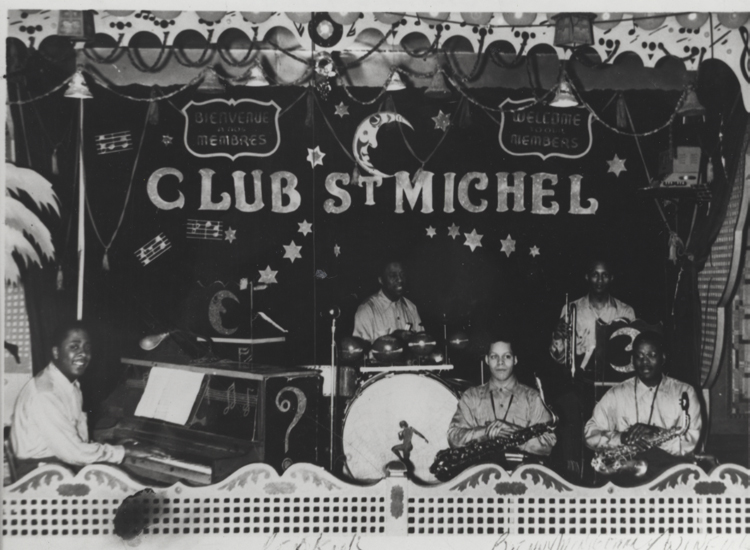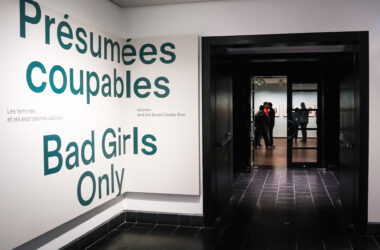Montreal is home to a famously vibrant music scene, one that is indebted to Black culture and music. Black musicians have made major contributions to the local music community, especially in the realm of jazz in the 20th century and continuing in all genres today. In honour of Black History Month, The McGill Tribune’s Arts & Entertainment staff highlights four notable Black musicians from Montreal who made great music.
Hanorah
If Amy Winehouse and Snoh Aalegra had a “voice-child,” it would be Hanorah. The texture of her vocals is the aural equivalent of feeling silk and lace in one sweep of the hand. Committed to a graceful and empowered vulnerability, Hanorah’s lyrics could easily stand alone as poetry. Yet, the lively tempo of her music does not succumb to the emotional gravity of her lyrics. Hanorah’s music, while seemingly grounded in soul, is also not confined to it. “Long Road,” for instance, with its steady, sauntering beat and guitar instrumentals, has the faintest twinge of country combined with pop-soul hybrid vocals. With an indomitable voice and poignant lyricism, Hanorah, without a doubt, should be on your playlist.
Backxwash
A longtime fan-favourite of Montreal’s underground community, Zambian-born Backxwash should be on everyone’s radar—and for good reason. Snagging the Polaris Prize in 2020 for her album God Has Nothing To Do With This Leave Him Out Of It—effectively achieving the highest honours available to Canadian artists—Backxwash is at the indisputable forefront of not just hip-hop and rap, but the very state of contemporary music production. Layering punchy flows on topics ranging from gender identity, racism, and witchcraft over warbling industrial beats, Backxwash takes listeners into her beautifully horrific world. Beyond being an extraordinary, once-in-a-lifetime talent, Backxwash is also pretty funny on Twitter, offering quips on motivational speakers and insights into her wildly inventive creative process.
Harold “Steep” Wade (1918-1953)
Wade was a legendary Canadian jazz musician in the 1930s and 40s, sharing his musical gifts on the piano and saxophone. Born to a musically disinclined family in Montreal, Wade combined his self-teaching and study under Milton Smythe to successfully navigate the then-duelling classical and jazz styles. He played alto saxophone for Myron Sutton’s Canadian Ambassadors and later performed on the piano with Louis Metcalf’s International Band at the Café St-Michel. As a member of Wilkie Wilkinson’s Boptet, Wade helped create Canada’s first known bebop recordings. At Café St-Michel, Wade befriended and mentored a young Oscar Peterson, extending his own legacy in jazz through his mentee—Peterson would continue to become one of greatest jazz pianists in music history. Despite racial tensions in music in the post-Depression era affecting his commercial and recording abilities, Wade’s deep devotion to music brought him respect as one of the greats of Montreal’s growing jazz scene.

Kaytranada
If you’ve ever attended Igloofest, Osheaga, or any house party in the Milton-Parc neighbourhood, there’s a good chance you’ve grooved along to Kaytranada’s beats. Born in Port-au-Prince and raised in Montreal, the DJ/producer and 2016 Polaris Prize winner has a signature sound that is warm and reserved, but always danceable. There are no dull moments on either of his two LPs, 99.9% and Bubba, and his 2013 Boiler Room performance continues to live in infamy as both a stellar DJ set and as a fascinating documentation of club social dynamics. While Kaytranada’s drum beats vary in complexity and tempo, their pitch sounds hollow and deep, giving the digitally produced dance tracks an analog feel. Combined with airy, warping synths, an always-moving bass line, and killer vocal features, Kaytranada has mastered the perfect formula for producing Grade-A Bops.









